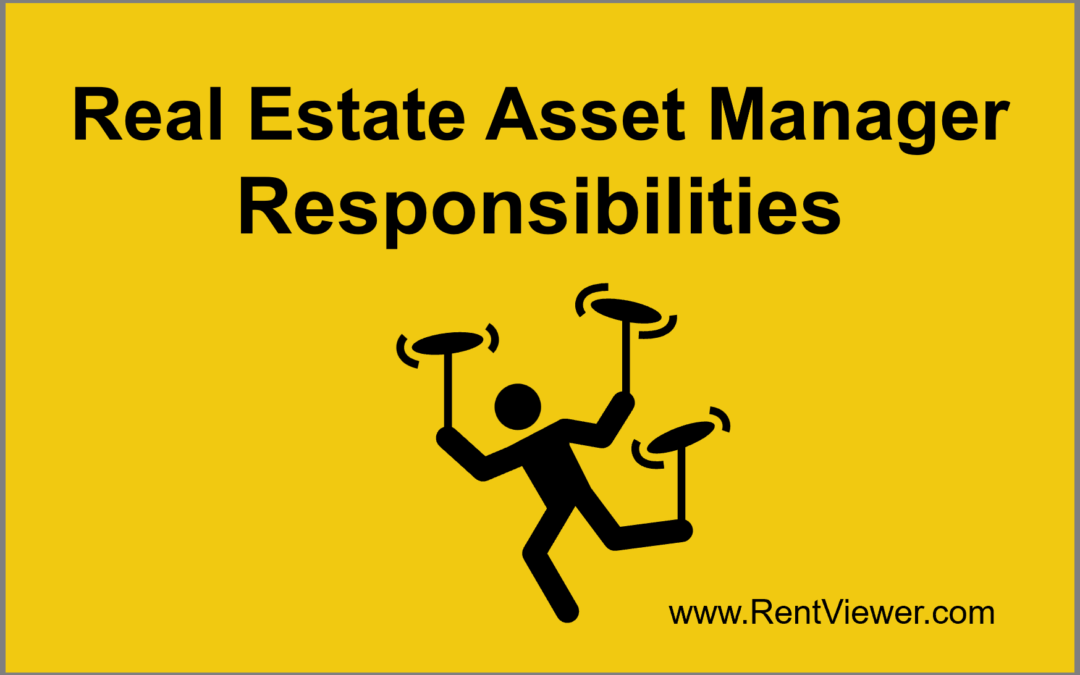What are the Responsibilities of a Real Estate Asset Manager?
Acquiring a property on great terms doesn’t mean that the investment will pay off handsomely! How that asset is managed over the next few years is what will determine whether the investment turned out to be a good one or bad one. And this is where Real Estate Asset Managers come in.
Real estate asset managers are responsible for overseeing and maximizing the value and return on investment for real estate portfolios. Their job is to help achieve the investment objectives set by property owners or investors.
Here’s a generic job description for a real estate asset manager. As you can see, asset managers need good data and analytics to be effective in their roles.
Portfolio Oversight & Strategy
- Define Investment Objectives: Clearly articulate the investment goals and risk tolerance for each property or portfolio.
- Develop & Implement Business Plans: Create and execute strategic plans for each asset, including leasing, marketing, capital improvement strategies, and exit plans.
- Market Research & Analysis: Continuously monitor market trends, competitor activity, and economic conditions to identify opportunities and mitigate risks.
Financial Management & Performance
- Budgeting & Forecasting: Develop and manage budgets, forecast cash flow, and monitor financial performance against projections.
- Lease Negotiations & Management: Negotiate leases with tenants, oversee lease administration, and ensure optimal rental income.
- Expense Control: Identify and implement cost-saving measures to improve property operating efficiency.
- Financial Reporting: Prepare and present regular financial reports to investors and stakeholders.
Property Operations & Maintenance
- Oversee Property Management: Hire, train, and supervise property managers and on-site staff.
- Meet regularly with the property operations teams and review their KPIs.
- Manage Property Maintenance: Ensure timely and cost-effective maintenance and repairs to preserve property value.
- Capital Improvements: Evaluate and implement capital improvement projects to enhance property value and tenant satisfaction.
Risk Management & Mitigation
- Identify & Assess Risks: Proactively identify and assess potential risks, such as economic downturns, natural disasters, and tenant issues.
- Develop & Implement Risk Mitigation Strategies: Develop and implement strategies to mitigate identified risks, such as insurance, legal and regulatory compliance, and emergency preparedness plans.
Investment Analysis & Acquisitions
- Conduct Due Diligence: Conduct thorough due diligence on potential acquisitions, including market analysis, financial analysis, and property inspections.
- Investment Analysis: Analyze potential investment opportunities, including evaluating risk and return, and preparing investment proposals.
- Acquisition Process: Participate in the acquisition process, including negotiation and closing of property purchases.
Exit Strategy Planning
- Develop & Implement Exit Strategies: Develop and implement strategies for exiting investments, such as selling, refinancing, or restructuring.
- Maximize Exit Value: Work to maximize the value of the asset upon exit through property improvements, lease-up strategies, and market timing.
Investor Relations & Communication
- Communicate with Investors: Maintain regular and transparent communication with investors, providing updates on property performance and market conditions.
- Build & Maintain Relationships: Build and maintain strong relationships with investors, tenants, property managers, and other stakeholders.
Asset Management and Data Analytics
RentViewer is designed around the job responsibilities of real estate asset managers. Instead of having dozens of spreadsheets for things like debt, underwriting, budget variances etc. RentViewer unifies the data in a data warehouse and makes it easy for teams to create models and custom reports. And everyone looks at the same version of the truth!
Sign up for the Real Estate Analytics 101 Course
Become and analytics thought leader in your company. Learn about data management, data analysis, and making an impact with data analytics.


